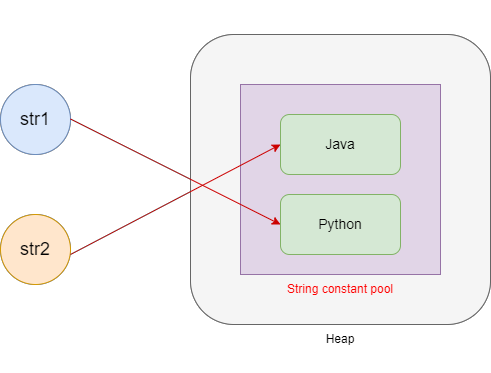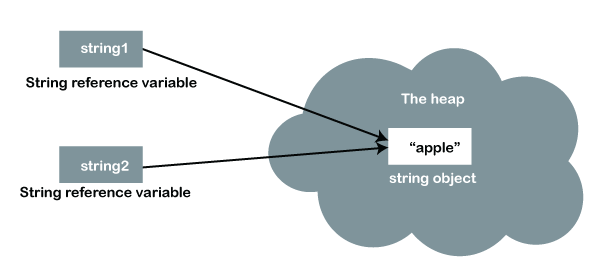What Is Unalterable Strings and Exactly How It Works
In the realm of programming, recognizing the idea of unalterable strings is vital for creating durable and protected applications. Immutable strings refer to strings that can not be changed after they are created, guaranteeing information honesty and predictability within the code.
The Fundamentals of Unalterable Strings
Immutable strings, as a basic principle in programming, are character sequences that can not be transformed when they are produced. This means that when a string is assigned a value, that worth can not be modified. In languages like Python and Java, strings are immutable objects, leading to different effects in terms of memory monitoring and data integrity.
Among the essential benefits of immutable strings is that they provide a feeling of safety in data manipulation. Given that the web content of an immutable string can not be changed, it guarantees that the original information remains intact, decreasing the threat of unintended adjustments during program implementation (Why are strings immutable in Java?). This building also simplifies debugging procedures, as developers can trust that when a string is specified, its value will certainly not be unintentionally altered
When a new string is created based on an existing one, instead than changing the initial string, the brand-new worth is kept individually. On the whole, recognizing the fundamentals of immutable strings is vital for grasping programs ideas and enhancing code performance.
Benefits of Unalterable Strings
Structure upon the safety and security and efficiency advantages of unalterable strings, their advantages reach enhancing code reliability and simplifying concurrent shows jobs. By being unalterable, strings can not be customized after development, which eliminates the risk of unintended adjustments in the information they save. This inherent immutability guarantees that as soon as a string is produced, its worth stays consistent throughout the program's implementation, reducing the opportunities of insects brought on by unexpected alterations.
Furthermore, unalterable strings add to code dependability by making it easier to reason concerning the state of a program. Because strings can not be altered, developers can rely on that a string will always hold the same worth, streamlining debugging and maintenance efforts. This predictability brings about extra secure and dependable codebases.

Execution in Shows Languages
Within various programming languages, the consolidation of immutable strings is an essential element that impacts just how information is handled and controlled within code frameworks. The application of immutable strings varies across various programming languages, with each language using its own systems to sustain this concept.

On the other hand, languages like C and C++ do not have integrated support for unalterable strings. Designers in these languages have to by hand apply immutability by imposing guidelines within their code to avoid straight alterations to string things.
Ideal Practices for Dealing With Immutable Strings
When taking care of immutable strings in programming languages like Java and Python, adhering to ideal practices guarantees effective and safe and secure information manipulation. One of the essential finest techniques is to utilize StringBuilder or StringBuffer rather than directly manipulating strings, particularly when dealing with substantial concatenation procedures. These courses provide mutable alternatives for string adjustment, aiding to avoid unnecessary memory allowances and improving performance.
Furthermore, when working with delicate data such as passwords or API keys, it is important to stay clear of saving them as ordinary text in unalterable strings. Utilizing safe and secure storage space devices like char varieties or specialized libraries for taking care of delicate info helps reduce safety and security risks connected with unalterable strings.
Real-world Applications and Instances
Exploring sensible applications of immutable strings in numerous industries reveals their considerable effect on information honesty and system reliability. In the healthcare industry, unalterable strings play a critical duty in guaranteeing the safety and security and discretion of individual data. By avoiding unapproved modifications to sensitive info such as clinical documents and prescriptions, immutable strings assist maintain compliance with strict privacy laws like HIPAA.
Monetary establishments additionally benefit from the unalterable nature of strings to improve the security of consumer data and purchase Extra resources records. Unalterable strings help protect site against fraud and unauthorized changes to monetary info, supplying a durable protection versus cyber hazards and making sure the trust and confidence of clients.

Conclusion
Best methods for functioning with unalterable strings consist of preventing direct adjustments and making use of methods that return new string items. Real-world applications of immutable strings include data encryption, caching, and string manipulation tasks.
Unalterable strings refer to strings that can not be modified after they are produced, making sure information stability and predictability within the code. When a new string is produced based on an existing one, address rather than modifying the initial string, the new worth is saved independently.In languages like Java and Python, strings are immutable by default, meaning that as soon as a string object is developed, its worth can not be transformed - Why are strings immutable in Java?. Best techniques for functioning with immutable strings consist of staying clear of straight adjustments and making use of approaches that return new string things. Real-world applications of unalterable strings consist of data encryption, caching, and string control jobs